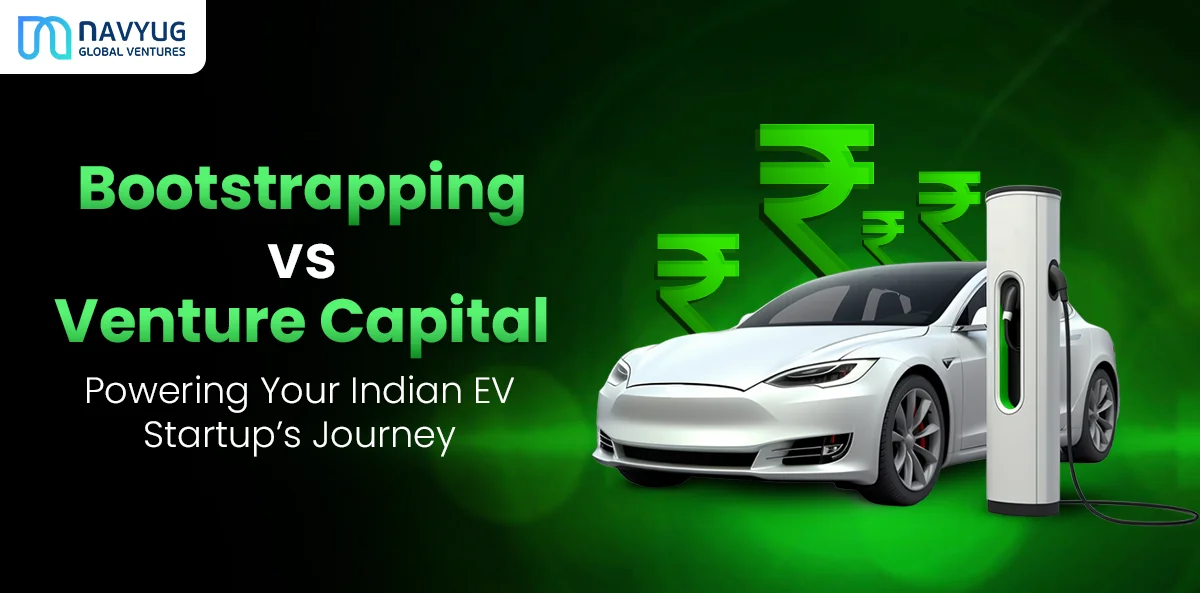What is Venture Capital?
Venture capital, or VC, is a type of funding provided by investors to startups and small businesses. These investors, known as venture capitalists, invest in companies that have high growth potential. In return, they receive ownership stakes in the company. Unlike traditional loans, which need to be repaid with interest, venture capital investments are equity-based. This means venture capitalists gain a share of ownership, and their profits depend on the company’s success.
Some famous venture capital companies are Sequoia Capital, Andreessen Horowitz, and Kleiner Perkins. These companies have played a significant role in funding well-known startups like WhatsApp, Airbnb, and Uber, helping them grow from small ideas into billion-dollar companies.
Does VC Offer More than Just Money?
Venture capital provides startups with the funds they need to develop their products, grow their teams, and expand their operations. Without this support, many innovative ideas might not reach the market. However, venture capital is not just about money. Venture capitalists often offer valuable mentorship, industry expertise, and networking opportunities to help startups succeed. This guidance can be crucial in navigating the challenges of growing a new business. You can learn more about the complete process that takes place within VCs to fully understand their role in a startup’s journey.
How Venture Capital Works in General
Venture capital operates on the principle of high risk, high reward. Here’s a step-by-step breakdown of how the VC process works:
- Pitching the Idea: The process begins when entrepreneurs pitch their innovative business ideas to venture capitalists. These pitches usually include a business plan, a prototype or proof of concept, and a clear vision for rapid growth.
- Investor Selection: Venture capitalists carefully evaluate these pitches and select startups with the most promising potential. They look for great ideas and a strong, capable team to bring those ideas to life.
- Funding Rounds: As startups grow, they go through several funding rounds, typically categorized as pre-seed, seed funding, series A, and series B. Each round provides the necessary capital for the startup to reach its next growth milestone.
- Ownership Equity: In exchange for their investment, venture capitalists receive an ownership stake in the startup. This equity stake represents their share of the company and potential future profits.
- Support and Mentorship: Venture capitalists actively support their portfolio companies by offering guidance, strategic advice, and valuable connections to help them succeed.
- Exit Strategy: Venture capitalists plan for an exit strategy, such as an initial public offering (IPO), acquisition, or merger. This is when they realize a return on their investment, often gaining substantial rewards if the startup is successful.
Why Startups Raise Funds?
Raising capital is crucial for startup growth, driven by several key reasons:
- Fueling Growth: Startups require capital to invest in research and development, marketing, and expanding their operations. Venture capital provides the resources needed to accelerate growth.
- Attracting Talent: Well-funded startups can attract top talent by offering competitive salaries and equity incentives. This allows them to assemble experienced teams crucial for success.
- Scaling Quickly: In the competitive startup landscape, rapid scaling is essential. Venture capital enables startups to enter new markets and capitalize on growth opportunities faster than their competitors.
- Building Infrastructure: Developing necessary infrastructure and technology for a successful product or service often demands substantial initial investment. Venture capital supports startups in building these foundations.
- Risk Mitigation: Startups face significant risks of failure, especially in their early stages. Venture capital provides financial stability and support during challenging periods, helping to mitigate risks.
Stages of Raising Capital
Raising capital through venture capital typically involves three main stages:
- Pre-Seed Stage: In the pre-seed stage, startups seek modest early-stage funding to develop their products, conduct market research, and refine their business plans. This stage focuses on proving product-market fit and gauging market interest. Funding sources often include microVCs or angel investors who may receive convertible notes (short-term debt that can convert to equity), equity stakes, or preferred stock options in exchange for their investment.
- Seed Stage: The seed stage follows, providing more substantial funding to support initial business growth. This capital is used for operational needs such as hiring, marketing, and expanding business operations once the startup has a viable product or service. This stage is also known as Series A funding, with subsequent rounds labeled as Series B and beyond.
- Late Stage: Late-stage funding targets mature companies that have demonstrated significant growth and revenue generation, possibly even achieving profitability. Venture capital companies typically take a less active role at this stage, with private equity companies and occasionally hedge funds becoming involved due to lower risk and higher potential returns.
These stages serve as a general framework, but the specific process can vary based on the startup’s industry and unique circumstances. Each stage represents a critical phase in a startup’s journey to secure funding and achieve sustainable growth.
Exploring the Venture Capital Process Step-by-Step
The venture capital process follows a structured journey with several key steps:
- Deal Sourcing: Venture capitalists actively search for investment opportunities through networking, referrals, and direct submissions from entrepreneurs.
- Due Diligence: Upon identifying a potential opportunity, thorough due diligence is conducted. This includes extensive research into the startup’s market, team, financials, and growth potential.
- Term Negotiation: Following due diligence, negotiations begin on the terms of the investment. This involves determining the startup’s valuation and agreeing on the equity stake that the venture capitalist will acquire.
- Investment: Once terms are finalized and agreed upon, the venture capitalist invests the agreed-upon capital into the startup.
- Value Addition: Venture capitalists actively support startup growth by offering strategic guidance, mentoring, and access to their extensive network of contacts. This assistance is crucial in navigating challenges and seizing opportunities for expansion.
- Exit Strategy: The primary objective for venture capitalists is to exit their investments profitably. This typically occurs through an initial public offering (IPO), acquisition by another company, or merger. A successful exit allows venture capitalists to realize returns on their investment, rewarding both the startup and the investors.
Importance of Exit Strategy for VCs
Exit strategy is paramount in venture capital investment. Venture capitalists invest with the expectation of achieving returns, and the chosen exit strategy plays a pivotal role in realizing these goals.
- Initial Public Offering (IPO): Going public through an IPO is a highly desired exit strategy. It allows venture capitalists to sell their shares to the public, potentially yielding substantial profits.
- Acquisition or Merger: Another common exit strategy is when a larger company acquires the startup. The acquiring company may offer a premium for the startup, benefiting both the startup’s founders and the venture capitalists.
- Secondary Sale: In some instances, venture capitalists may sell their equity stake to other investors or institutions before the startup undergoes an IPO or acquisition.
A well-planned exit strategy ensures that venture capitalists not only recoup their investment but also realize significant returns. This strategic consideration underscores the importance of foresight and planning throughout the venture capital investment lifecycle.
Advantages and Disadvantages of Venture Capital
Venture capital offers several advantages to startups:H3-Advantages:
- Access to Capital: Startups gain access to the funding necessary for growth and expansion.
- Expertise and Mentorship: Venture capitalists often bring valuable industry knowledge and experience, serving as mentors to entrepreneurs.
- Networking Opportunities: Venture capital company have extensive networks that can facilitate partnerships and collaborations.
- Validation: Investment from a reputable venture capital firm can validate the startup’s potential, enhancing credibility with other investors and customers.
Disadvantages:
- Loss of Control: Venture capitalists take an ownership stake in the company, leading to potential loss of control for entrepreneurs.
- Pressure for Growth: Venture capital comes with high growth expectations and pressure to meet milestones, which can be stressful for founders.
- Equity Dilution: With each funding round, the founder’s ownership stake in the company may become diluted.
- Exit Pressure: Venture capitalists operate on timelines to realize returns, which can lead to premature exit decisions that may not align with the startup’s long-term goals.
Can Startups Succeed Without the Help of VCs?
While venture capital can significantly boost startup growth, it is not the sole path to success. Many startups have thrived through alternative funding methods such as bootstrapping, crowdfunding, and revenue-based financing. These approaches offer distinct advantages:Advantages of Bypassing Venture Capital:
- Full Ownership: Founders retain complete control over their company’s direction and decision-making processes.
- No Equity Dilution: Without venture capital, founders do not need to sacrifice ownership stakes.
- Flexibility: Founders can set their own pace and objectives without the pressure to meet external investors’ expectations.
- Sustainable Growth: Bootstrapped startups often prioritize profitability from the outset, fostering sustainable, long-term success.
Alternatives to Venture Capital for Startups
Several alternatives to venture capital exist for startups seeking funding and support:
- Bootstrapping: Start and grow your business using personal savings and revenue generated by the company. This method offers complete control and ownership over the business’s direction and decisions.
- Crowdfunding: Raise capital from a large number of individuals who contribute smaller amounts of money, often through online platforms. Crowdfunding allows startups to validate their ideas and generate funds from supporters who believe in their vision.
- Angel Investors: Individuals who provide capital to startups in exchange for equity. Unlike venture capitalists, angel investors are typically high-net-worth individuals investing their own funds rather than institutional companies.
- Revenue-Based Financing: Secure financing based on a percentage of your monthly revenue. This approach offers more flexibility than traditional equity deals because repayment is linked directly to the startup’s revenue.
- Accelerators and Incubators: Programs that offer funding, mentorship, and resources to startups in exchange for equity. Accelerators and incubators provide a structured environment for growth, helping startups refine their business models and scale more rapidly.
- Bank Loans: Traditional bank loans and lines of credit can also provide funding for startups, although they often require collateral and have strict eligibility criteria based on the startup’s financial history and creditworthiness.
Evaluating Venture Capital for Your Startup
Choosing the right funding path for your startup requires careful consideration. Here are key factors to assess when determining if venture capital is suitable for your business:
- Growth Potential: Venture capital is ideal for startups with the potential for rapid and substantial growth. Evaluate if your business model and market offer significant scalability.
- Industry Alignment: Certain industries, such as technology and biotech, often align well with the venture capital model due to their high growth potential and innovation-driven nature.
- Long-Term Goals: Consider your long-term goals and whether you are willing to exchange some control and equity for the opportunity to scale quickly with venture capital backing.
- Exit Strategy: Assess your readiness for an exit strategy, as venture capitalists typically aim for a profitable exit through IPO, acquisition, or merger within a specific timeframe.
- Network and Resources: Evaluate the additional value that venture capitalists can provide beyond funding, such as industry expertise, mentorship, and networking opportunities that can accelerate your startup’s growth.
- Risk Tolerance: Understand the inherent risks associated with venture capital investment, including the potential for failure and the pressure to achieve growth milestones within set timelines.
In summary,
Venture capital provides startups with a potent means to secure essential funding for growth and success. It significantly fuels innovation and contributes to economic advancement. However, while valuable, venture capital is just one avenue to success. Entrepreneurs must thoughtfully assess their objectives, industry dynamics, and risk appetite when considering venture capital funding. Whether opting for this route or exploring alternatives, the entrepreneurial spirit remains central to every startup’s journey toward achieving its goals.
Questions? Navyug Global Ventures Has the Answers
Navyug Global Ventures Private Limited is a prominent venture capital company based in Chennai. Specializing in early-stage investments, Navyug Global Ventures is dedicated to supporting innovative startups with high growth potential. The company provides not only the necessary capital but also strategic guidance, industry expertise, and valuable networking opportunities. By partnering with visionary entrepreneurs, Navyug Global Ventures aims to foster the growth of groundbreaking ideas and contribute to the thriving startup ecosystem in India. Whether it’s funding, mentorship, or strategic support, Navyug Global Ventures is committed to helping startups achieve their goals and succeed in their entrepreneurial journey.Need Startup Funding? Connect with us now!




